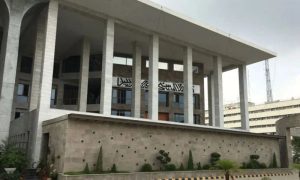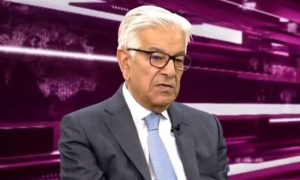LAHORE: Air power is the ability to use air and space capabilities to achieve broad civilian and military objectives in the economic, commercial, and scientific domains.
This was the crux of the speeches at a seminar organised by the Center for Aerospace and Security Studies (CASS), Lahore on ‘Emerging Trends in Aerospace: Opportunities for Pakistan’.
Pakistan stands at the threshold of many opportunities to capitalize on emerging trends such as space exploration, satellite technology, unmanned aerial system and electric propulsion of green aviation. The seminar focused on Pakistan’s air power capabilities.
Opening remarks were delivered by Air Commodore Khalid Iqbal (Retd), Director, National Security, CASS, Lahore. His address was followed by a keynote address by Major General Ahmed Bilal (Retd), former Chairman of the Space and Upper Atmosphere Research Commission (SUPARCO), who highlighted the prevailing global trends in aviation.
Dr Ali Sarosh, Associate Professor, Air University, focused on the development of space energy in South Asia, including its military and civilian applications, while Professor Dr. Ahmed Saeed Minhas of DHA Suffa University clarified the gaps in international space law and a viable development strategy for Pakistan. The space program.
After the guest speakers’ remarks, there was an extensive question and answer session to delve deeper into the topic.
In his closing remarks, Air Marshal Asim Suleiman (Retd), President of CASS Lahore, said that Pakistan’s national space policy should prioritize private sector participation in research and development and encourage the involvement of the commercial sector. He added that Pakistan should focus on space technology, infrastructure, industrial, technological potential and human resources.
He further said that the country’s national security strategy recognizes the importance of maintaining access to space because space-related technologies are key to determining the nation’s military strategy. The President also said that Pakistan must integrate space-related services into mainstream settings for better governance, efficient functioning, sustainable development and social welfare.
A three-pronged national strategy should be pursued as the “way forward”: First, ensure the full utilization of available aviation capabilities and resources for socio-economic development and national security; Second, to achieve self-sufficiency/indigenization to the highest possible extent in the short/medium term and to meet basic needs across the aviation spectrum; and thirdly, synergy of national efforts for sustained growth of the aviation sector.
National space policy should be based on realistic goals, taking into account ground reality, national ambitions and the international environment. It should be a well-thought-out institutional mechanism that creates links between state-run and commercial activities, ensures the preservation of national priorities and the protection of state interests. There is a need to rejuvenate the national space policy to generate new impetus towards the development of space capabilities and capacities for civilian and military applications.
Internationally, the space sector is growing exponentially, with public-private partnerships (PPPs) in research and development aimed at acquiring next-generation capabilities. To ensure the success of Pakistan’s space program, it is essential that the national leadership sets goals, allocates resources and creates a credible infrastructure.
The success of the aerospace program depends not only on recognizing the importance and usefulness of aerospace technology in socioeconomic and national security areas, but also on harmonizing national efforts to achieve these goals.
























